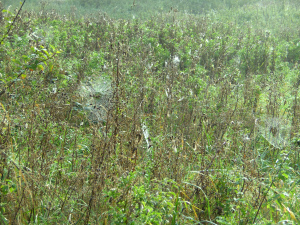David Hadley's Blog, page 96
July 17, 2014
The High Caves
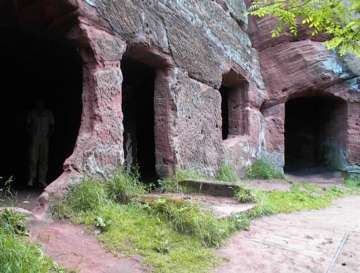
The hillside rose high above the village beneath it. The village itself was, of course, long deserted. I didn’t expect to find anything useful there and I wasn’t too disappointed when I left as empty-handed as when I arrived.
I hadn’t expected any people, these days no-one would be foolish enough to attempt to live anywhere so obvious. Well, if they did, they wouldn’t survive there for long.
For some reason, there was something, maybe a memory, which made me turn from the remnants of the road out of the deserted village. I looked up at the hillside rising from the village into the woods and then beyond. Staring at the bare sandstone, topped with low shrubs and grass reminded me of something.
I’d been here before, back when times were different. I recognised it from some childhood memory. That same memory insisted there was something up on that hillside.
When I got up there, I remembered the caves moments before I saw them emerge out of the trees. Caves carved centuries ago out of the sandstone and into homes for the people who’d lived here.
What I didn’t expect was the sign. A crude hand-lettered sign, burnt into the wood, the letters fading now.
Help Us!
I knew there would be no-one there, not now, not after that. These days, to survive you have to be invisible or keep on the move. That was why I was here and that was why whoever burnt those letters into that piece of wood would be no more.
I sighed and looked up at the caves, wondering if they would be safe for one night.
Then I saw a shadow move deep inside one and I knew it was time to leave before that shadow shifted again and a Slip Creature came through to tear my body from my soul.
So, I turned….
I ran.
I never looked back.


July 16, 2014
TV Cookery
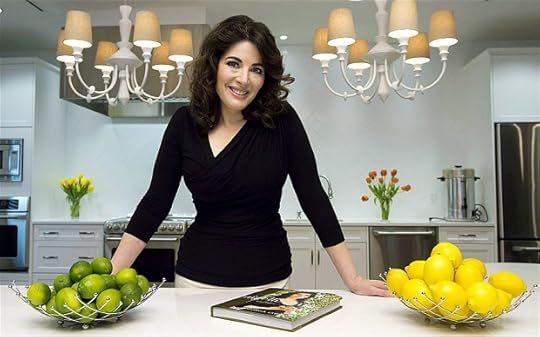
There is time and there is place. There is also thyme and plaice, but since this is not a cooking… er… thing, we will leave those to one side. Probably next to the new potatoes and the… well, whatever that green stuff is.
Instead, we will sally fourth (as Sally Third has phoned in sick, again) and see what other satsumas subjects lie out there on the dining table… the horizon.
Some do say that currant… er… current TV schedules have far too many cooking shows on them. Rather than a touch of cooking shows, a hint of TV chefs, a taste of gastronomic delight, we get heavy stodgy schedules weighted down with massive dumplings of cooking programmes.
However, most of us don’t really notice such things. After all, it doesn’t usually matter that much what is on the TV as long as the takeaway arrives on time, or the family-size bag of crisps isn’t too far out of reach from the sofa.
Although, I – (meal)for one, possibly with room for afters – think TV designers have missed a trick in not incorporating a button for contacting the local takeaways on the TV remote control. A boon I’m sure many of us would appreciate. Especially as today’s tiny mobile phones tend to get lost somewhere beneath the stomach horizon.
As an aside, this is probably one explanation for the current trend to put flat screen TVs high on the wall, rather than down low where they used to be. This often led to the TV appearing below the stomach horizon like the setting or rising sun as we tried in vain to peer over ourselves to comprehend just what Nigella was about to do with that courgette.
Anyway, anyone fancy a pound or two of cheese, or shall we just open another extra large bag of crisps in readiness for when Masterchef comes on?


July 15, 2014
River Of The Dead
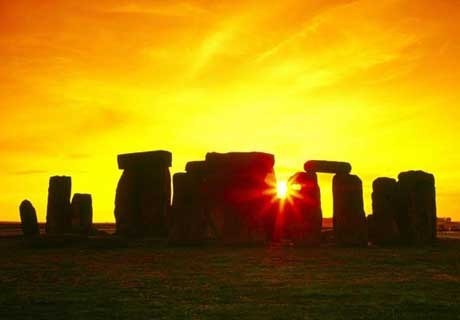
We died on the same day, my primary wife and I – as it should be. It was the day of my thirty-fifth summer. We became ghosts of the ancestors as the sun rose over the Temple of the Dead as it stood in the distance upon the sacred hillside.
Only moments before, we had been living people with our family standing around us at sunrise and now we were ghosts of the ancestors.
The family stood, for a moment, staring at the place where we were standing when we were alive, then turned away. I thought, just for an instant, my young wife number three, Shalia, had seen us as ghosts. There was a flicker in her eyes, but my secondary wife took her by the arm and pulled her away, both had tears in their eyes as they stared into the place we had stood only a short time before.
‘He was a good husband to all of us.’ Shalia said.
Grella nodded. ‘And a good father too. The ancestors will be proud when he walks amongst them.’ They held each other by the hand and turned away.
There was silence in the dawn, even the birdsong seemed muted.
‘It is time for us to go.’ Thalia touched my cheek. She smiled a tentative smile. ‘It is strange being dead, being a ghost, my husband.’
I nodded, still watching my other two wives as they walked away from the river. Trudging back up on to the raised ground where the village stood, safe from possible floods. There, they joined the rest of the villagers who’d gathered to watch our spirits disappear down the river of the dead.
We turned to our funeral canoe, making no sign – as it should be – that we were anything other than the dead. On the breeze, I could hear Shanik the shaman interpreting our movements for the rest of the village. They could no longer see us, now that we were dead. The rest of the village had to rely on his description of what we – our spirits – were doing.
We followed the ritual as precisely as we could. My primary wife sat in the back of the canoe. I took up the paddle, sitting in the centre of the canoe. Both of us stared off down the River of the Dead as I manoeuvred the canoe out and began to paddle us both off, down past the Temple of the Dead, and on to meet the ancestors in the afterlife.


July 14, 2014
The City Was A Dream
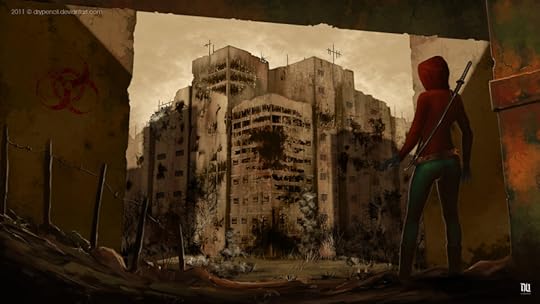
The city was a dream we created and told one another. We made its streets and buildings, filling it all with a population on the move from here to there and back again.
We grew too used to the silence in the Hollow Years. The silence of the brooding remains haunted our every day. The old city fell in ruins around us as we walked the streets where the weeds were breaking through.
First, the birds, then the urban wild animals and the feral pets took over what humanity left behind. At night, then increasingly through the days, the buildings echoed with the calls and the cries of those other animals taking over what humanity lost and left.
Those of us who remained, though, still felt an attachment to the times before the Hollow Years. Those of us who still remembered knew we had to act before the city was lost to the generations to come. The people who would rebuild all we had squandered in our foolishness.
So, we began to dream the city again. At night, we would gather around our fires out in what had once been a pleasant university suburb and we began to rebuild the city from our memories.
We started slow, rebuilding and repopulating each street a night at a time. We had to find some way of bringing the memories back. We began remembering the shapes of cars, the feel of the technology, the colours and shapes of the fashions and the smell of a city thriving on its people, traffic, industry and all its diverse foods. We remembered the smell of petrol, of curry, of herbs and sweat, perfume and spices. We brought back the smell of the dry dusty heat of summer and the musty dampness of autumn and the sharp cold chill of frosty winter.
Then, after we’d remembered everything of the city and poured it into our dreams, we then poured those dreams back over the remains of the city.
We knew then, at last, it was time for us to all to go back home.


July 11, 2014
A Tasting
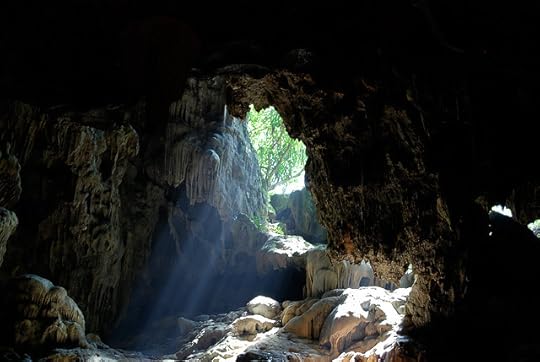
It tasted something, something new. It had been a long sleep, but the sudden light, awakening it, made it reach out. There was something there it had not tasted before. Something it had not tasted before the long sleep when the prey had gone from its world and it had settled down in a dark place to wait.
Now, though, its dark place was broken open and the sun, brighter than it remembered, was breaking through, waking it up. Now, reaching out, it found this new prey. As its tendrils broke the prey open, it heard the familiar scream of something dying and it knew this new prey would be good. Its tendrils entwined with the prey and it tasted.
The tendrils ripped the prey further apart, each tendril spreading out its capillaries, deep into the fragments of the prey each tendril held. It drained away all the sustenance, until all that remained of the prey was empty husk.
It was so hungry; it had not eaten for such a long time. Despite the harsh heat of the sun on its extremities, the tendrils reached out for more, searching for more prey. The tendrils moved over the drained fragments of the prey, over the clothes the prey was wearing before those tendrils had tore it apart. The tendrils flowed over the shoes and over everything the young woman’s friends had dropped as they fled, but there was nothing there left for it to eat.
It knew disappointment, and it knew hunger. Beyond that though, it had found some new prey now it had come from its long sleep. It knew too that this new prey was the best it had ever tasted.
It began to crawl.


July 10, 2014
A Ghost of Memory

She was a ghost, a living spirit from almost twenty years ago. I stood staring, watching her walk down that same street we’d walked down together all that time ago. The shops and street design had changed over the years, since I’d last been back to the town, of course. But it was the same street and she was there, unchanged and un-aged from when we walked hand-in-hand down that very street.
She saw me staring and turned to look, then turned back and walked up to an older woman who, somehow, reminded me of her too.
The older woman turned, stared and then marched across the pedestrianised street towards me. She grabbed the ghost from my youth and pulled her along too.
‘Pete?’ the older woman said. ‘Pete, is that really you?’
‘Yes,’ I nodded, smiling when I realised this older woman was Dawn and the other younger version – the image of her younger self – must be her daughter.
‘I thought she was you.’ I nodded towards the daughter as they drew closer.’ She looks so much like you… back in the day.’
Dawn laughed too and hugged me. ‘This is Cathy,’ she said. She turned to her daughter. ‘Pete was the love of my life when I was you age,’ Dawn said.
Cathy, obviously embarrassed, muttered some greeting and then said something about having to go.
Dawn and I turned to watch her leave.
‘She looks so much like you at that age.’ I could hear the wonder in my own voice.
‘That’s just what her dad says too,’ Dawn looked up at me. ‘But every time I look at her I can only see her real father.’
‘Really?’
‘I do.’ Dawn nodded, looking into my face. ‘I think she looks just like you.’


July 9, 2014
Lizard Man
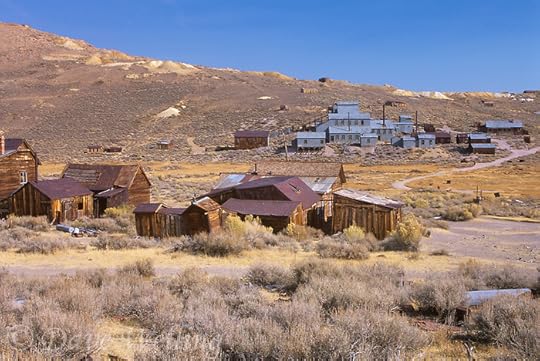
Despite the heat he always wore the same clothes, day in, day out: A long raincoat, a homburg hat, and a pair of dusty torn trousers with ragged turn-ups – which seemed to emphasise those feet of his. The long, arching claws emerging out of his scaly skin like scimitars.
In the heat of mid-day he would clamber up the rickety drainpipe that ran up the side of the Town Hall entrance and climb to the place where the arch of the entranceway almost met the overhang of the roof. He would lie, or sit – I was never entirely sure how to tell which was which with him – up there in the shade as the sun burnt the dust on the ground, that was too hot for anyone to walk on, a hundred feet or so below him.
I lived across the street from the Town Hall at the time, in the ruined cinema. I could look out of the window and see his cold-blooded reptilian eyes, almost on a level with mine, staring down at the street below. Powerful sunlight and deep shadows can cause all sorts of tricks, especially when we look too hard. But I am sure I once saw blood on those huge white teeth of his. It was around the time we found the first bodies. Although, it could have been a trick of the light, or even a trick of the mind, though.
It could have been just wishful thinking, of course. He was the only lizardman in our town. He was one of those who’d had the money – and, yes, the courage – to get the operation done when we all discovered what was going to happen, and that it was far too late for anything to be done to save us.
I suppose we all need something to fear, to hate, especially now. The lizardmen make easy, and obvious, targets for that helpless rage we all feel.
About a month or so after the lizardman arrived in our town, Suze offered to let me watch the next time he came around to her place. She said he was no better, and certainly no worse, than most of her customers. She said he had never, even once, scratched her with his claws, no matter how ungain and dangerous they seem. With the shape of his face, she said, he did not attempt to kiss her. He has no lips, anyway. And, she said, his breath smelt no worse that the water-miners’ breath when they come back to town after months out in the Barrens.
I was tempted, very tempted, to take Suze up on her offer at the time. I wanted to see if he could show emotion, passion. I expected that he would need to show some degree of passion to kill, especially in the way those travellers were killed, with their hearts ripped out. I suppose I wanted to see him in… what…? I don’t really know… a more animal state than the urbane way he strolled down the street in his dusty clothes, almost like some American private-eye in those black and white films from early last century. Not long after he, the lizardman, turned up in our town I found some catalogues and magazines down in the basement of the cinema from that time when the whole cinema nostalgia kick was in full swing, showing stills from some of those films. If he was not a lizardman, he could have been the star in any of them.
I found it difficult to reconcile visions of his reptilian skin lying next to Suze’s familiar nakedness. I wondered if she ever joked and chatted with him as she did with me? A couple of times I even wondered if she offered to let him watch me with her? Or if he thought perhaps I was the killer and he climbed up to the Town Hall roof to watch me, to get some clues from my haunting of the empty cinema.
[...] Continues here on Wattpad.


Wildlife Sanctuary
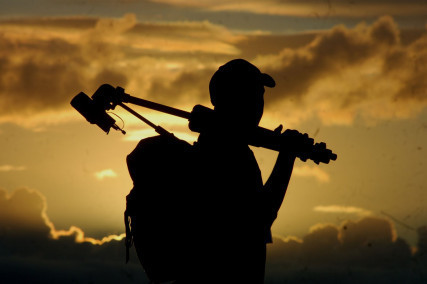
Even so, it was not quite what was expected. Even the gazelle was more than a little put out and the giraffe went off for a sulk.
The herd of zebras grazing in the conservatory were, the wife said, not their usual selves either. There was definitely something amiss in the whole house. Even the annual wildebeest migration from the front bedroom down to the kitchen and out across the lawn to their summer grazing area slightly north-east of the patio was far more restrained than usual.
At first, we put it down to the rumour started by number 54, up the road, about poachers in the area. Apparently, the poachers were putting leaflets through the door promising to buy all our ivory, tiger penises and rhino horn. You know, the usual sort of scam.
The fact we, as a mainly African Savannah sanctuary had no tigers was, of course, moot. We did have a few rhinos in the pantry and the herd of elephants were – we hoped – safe in the attic. Still it didn’t hurt to take precautions. Obviously, we as safety-first householders always let the leopard answer the door to cold callers, religious irritants and the almost inevitable charity annoyers. A policy that has remarkable success in deterring unwanted visitors. Especially so, if the vultures are still clearing up the remains of the last cold caller when our next potential visitor tries to venture up the front path.
However, it was not this very real fear of the prospect of poachers that was making the animals nervous. It wasn’t the imminent mating season either. That usually tends to cheer all the animals up, apart from the much larger queue for the bathroom when the chimps and the gorillas tend to hog the bathroom for their extended grooming rituals. However, since we added a few more crocodiles to the bath this has become a much more manageable problem.
However, it was all solved when the Neighbourhood Watch discovered the hidden cameras in the bushes behind the bus shelter. Along with a hide set up on the supermarket car park. It turned out, of course, that there were wildlife documentary teams on the prowl again. Not unconnected, of course, with the imminent mating season.
After all, we all know what perverts and deviants these self-styled ‘naturalists’ are. Always on the hunt for explicit mating shots. So we got all the street’s lions together into a pride. Then got them to flush out the naturalists. Which worked quite well. Perhaps too well, as we now seem to have a pack of rather obese hyenas on our front lawn. But, as the wife said, ‘Anything is better than bloody naturalists’.


July 8, 2014
What We Became
It was easy to forget, once we walked away, about what happened in that valley. At least, at first, we thought so. It was to be our new life, now we were on our own. We thought it would be… well, if not easy, then something we could live with… survive.
That night, though, around the fire there was little of the glib brave talk of earlier nights. Now there was none of that sense of adventure and feeling of being on the verge of a new way of life.
Of course, much of that talk had been bravado. A way of reassuring one another – and ourselves – that somehow we would get through these times, that we would survive.
It all changed that morning, standing there in the mist-shrouded valley with the bodies at our feet. Malcolm lay dying while we watched, feeling helpless. We’d killed most of them before they could draw a weapon, but Malcolm had stumbled. I saw him fall out of the corner of my eye as I tugged my blade from the neck of one of the guards. Because of that stumble his opponent had time to grab his axe, bringing it down across the back of Malcolm’s neck, despite Barlow putting two arrows into the guard as he raised the axe.
I’d rushed across, slicing through the guard’s unarmoured axe arm, then across his neck. By then, though, Malcolm was already dying and there was nothing we could do.
First, there was relief, then brief joy we’d survived our first confrontation as outlaws. Then we all turned, watching Malcolm choke on his own blood; none of us knowing what to do. Then we’d turned away, not wanting to see him amongst the dead littering the dew-damp grass All avoiding each other’s eyes as we each wondered what we’d become.


July 7, 2014
When the Time is Gone
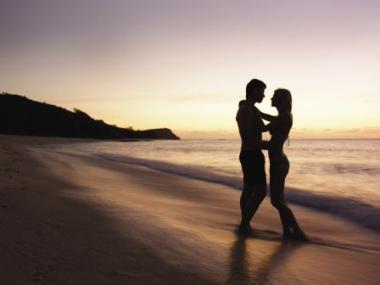
Times change – it is what time does. Time is never still, always rushing away from the now into the future, leaving the past behind. Sometimes, it leaves us behind too.
There was that day when her time left me behind at the station. I turned away, back into a life that became memories and echoes of memories of the times when she lived that life with me.
There were times when I left a life behind too. Sometimes looking back with regret. Seeing someone, whose time and life I’d shared, watching the train leaving the station before turning back to her life, or what remained of it, now I was no longer there with her.
Time is always forging ahead, eager for the next bend. Always wanting to see what lies over those far hills in the distance, craving to see what lies beyond the horizon.
Time drags us along with it. Sometimes tearing us apart, leaving one on the station and one heading off towards that curve in the track.
We walked those beaches together in some other lifetime, holding hands and staring out towards the horizon. Each thinking we had escaped the notice of time, that time was leaving us alone. Neither of us dared turn to look back over our shoulders, both knowing that soon time would come and drag one of us away, over that horizon and gone.
Of course, someone could always stand on the station and wait, or walk those beaches day after day. But we all know, even when we won’t acknowledge it, that the time will never come around again.



